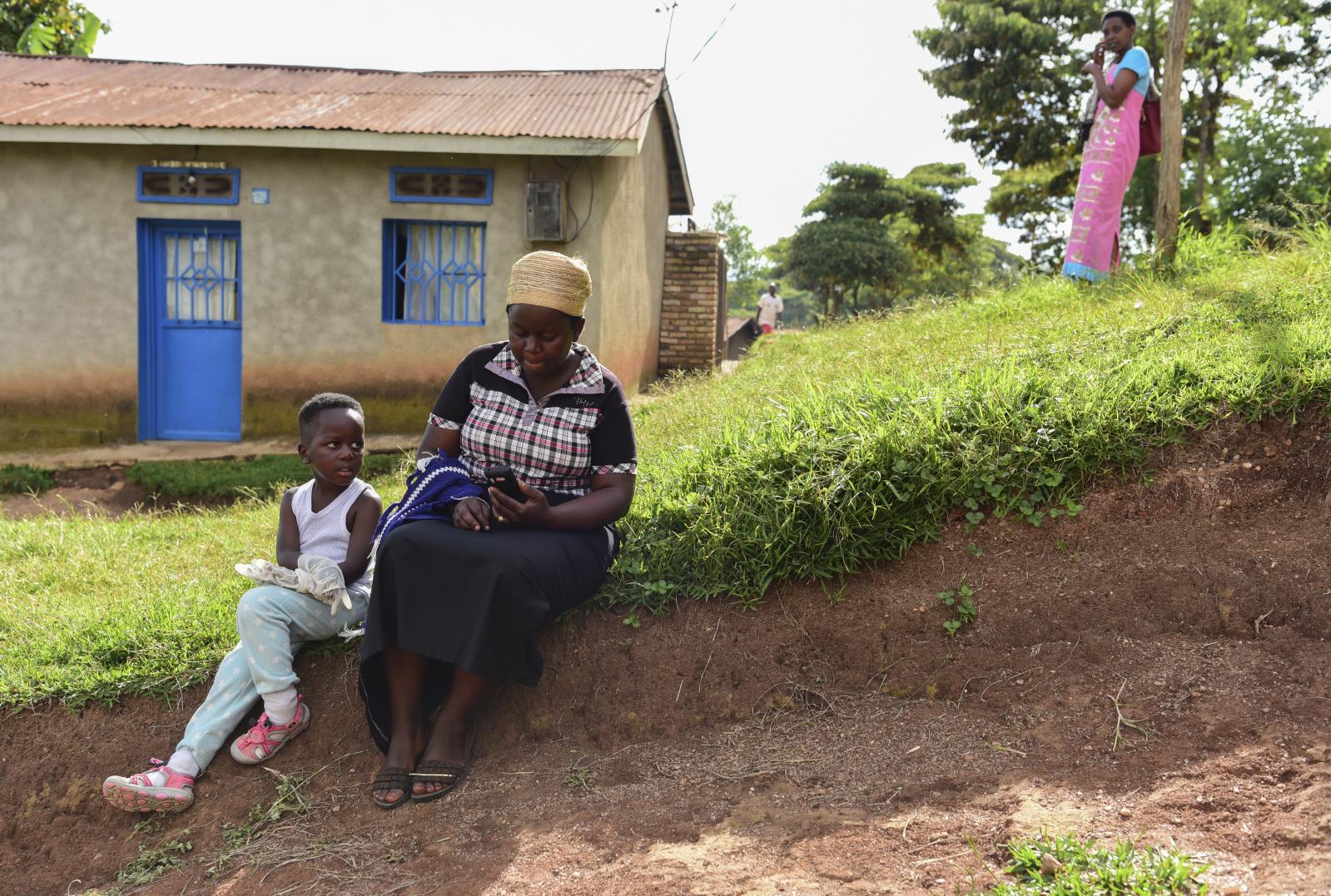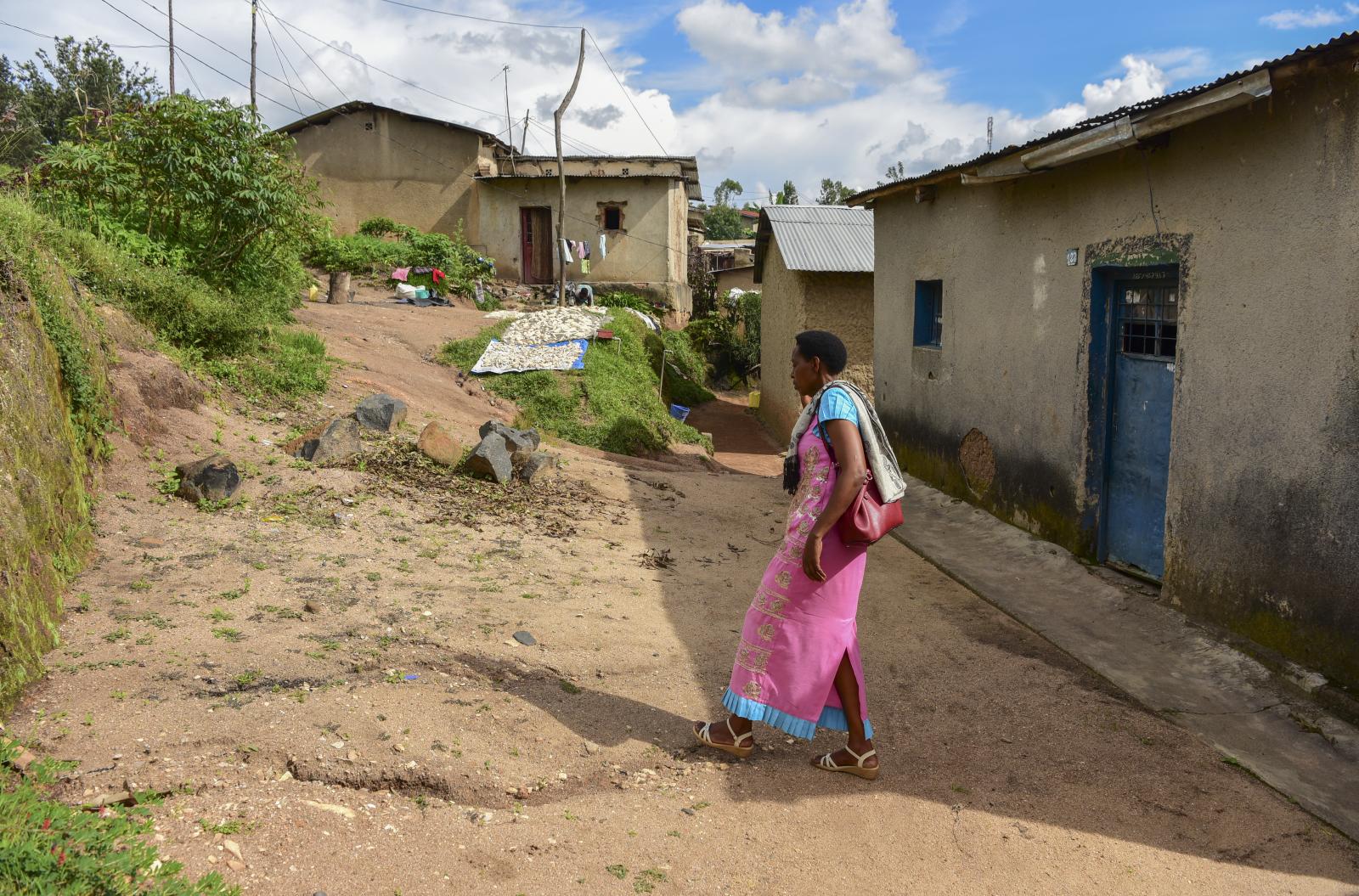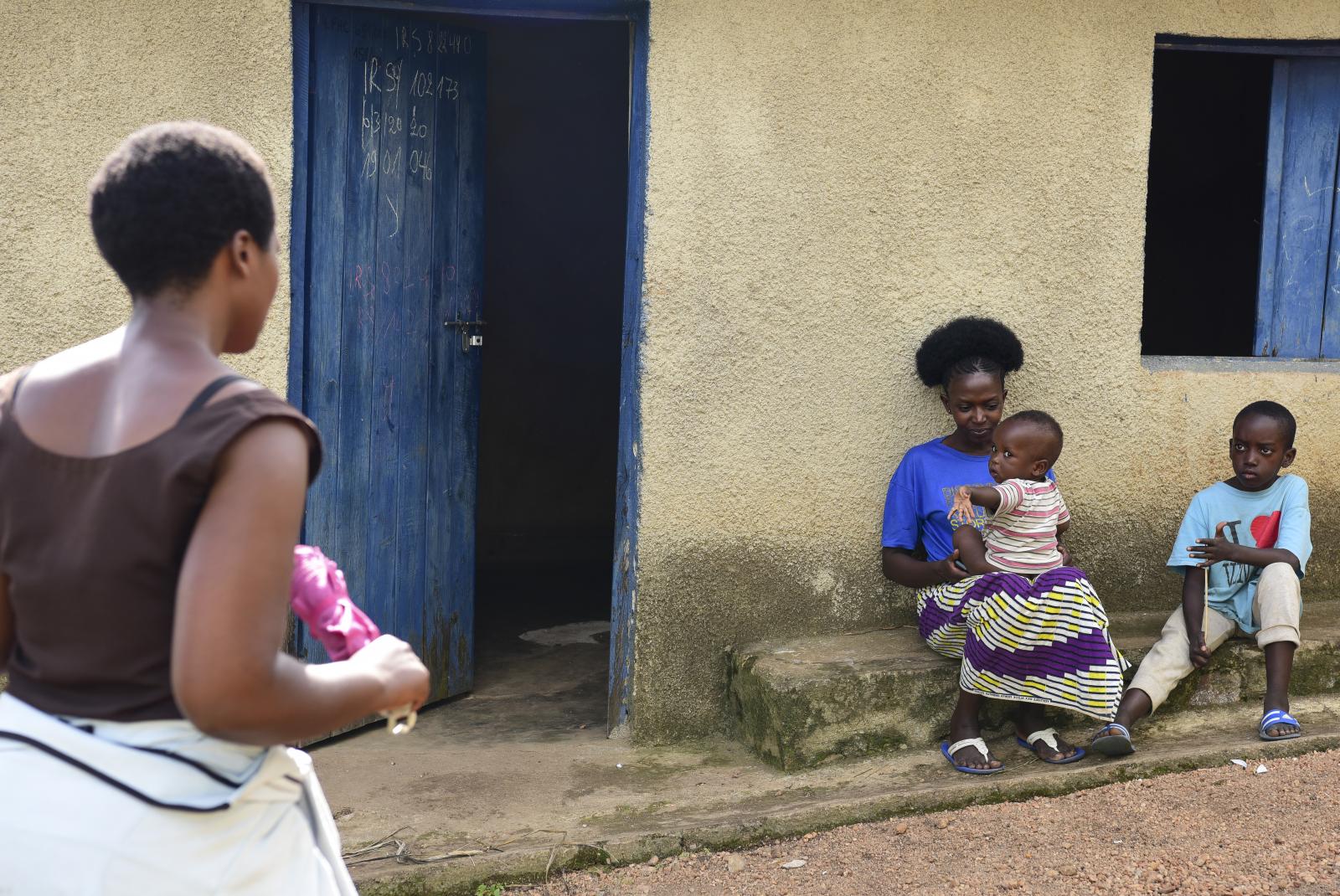Public Story
Rwanda's Community Health Workers Prepare for COVID-19 with Rural Public Information Campaigns
Community Health Workers (CHWs) are the cornerstone of Rwanda’s decentralized healthcare system, and are the entry point for millions of Rwandans receiving crucial medical care and essential information. Four CHWs are required in each village, bringing the total number to more than 60,000, according to the Ministry of Health. CHWs administer care to children and pregnant women, treat basic illnesses such as malaria, diarrhea, and pneumonia, and refer those with more advanced health conditions to local health posts and centers, or district hospitals if necessary.
Now, CHWs are on the front line of public health campaigns as COVID-19 numbers rise in Africa’s most densely populated country.
“Now when you’re looking in the district and going into deeper villages, visiting house to house, you find that these houses know how important it is to wash their hands,” said Mukandahiro Claudine, the Community Health Environmental Officer of Busasamana sector in Nyanza District. Claudine is charged with organizing the sector’s 114 CHWs to visit each home in their respective villages to deliver essential information about prevention of COVID-19, as well as recognizing its symptoms.
Public awareness campaigns broadcast over the radio and television reach even the most remote rural areas, but home visits from CHWs provide further details on accessing care when symptoms of COVID-19 are present.
“If someone has some symptoms for the coronavirus, they look for their CHW, who will communicate with the health center. The health center will communicate with the hospital, who can communicate with the national level, and they will come to pick up the patient,” Claudine advised.
“We protect ourselves by not shaking hands with other people, and trying to wash our hands as well,” said Nyinakumuntu Denyse, a 32-year-old mother of two living in Busasamana sector visited by Claudine during her home visits. “For the kids, we need to protect them by not allowing them to go and touch other people. We are just trying to keep them in the house and teach them how to be clean and to be safe.”
“The first symptom they tell us is fever,” said Uwinogoye Lucie, a CHW for the last 12 years in the Busasamana sector of Nyanza district. “But the issue is, someone who has malaria also has a fever. Now when someone comes to us for help, we keep distance with them.” Lucie asks patients about their other symptoms, to cross reference what she’s been taught to recognize as symptoms of COVID-19, such as a dry cough and shortness of breath. She then carefully administers a rapid diagnostic test for malaria, which gives results in minutes.
As of March 29, 2020, Rwanda’s Ministry of Health confirmed 70 positive cases of COVID-19. The individuals are a mix of foreigners, Rwandans with a history of recent travel, and those in contact with them. Isolation rooms are being prepared across the country in Health Centers, even as the country has yet to report any cases of COVID-19 in rural areas outside of the capital city. The country is operating under a lockdown that includes the closing of non-essential businesses, suspension of travel between cities, and restriction of non-essential movements outside of the home.






